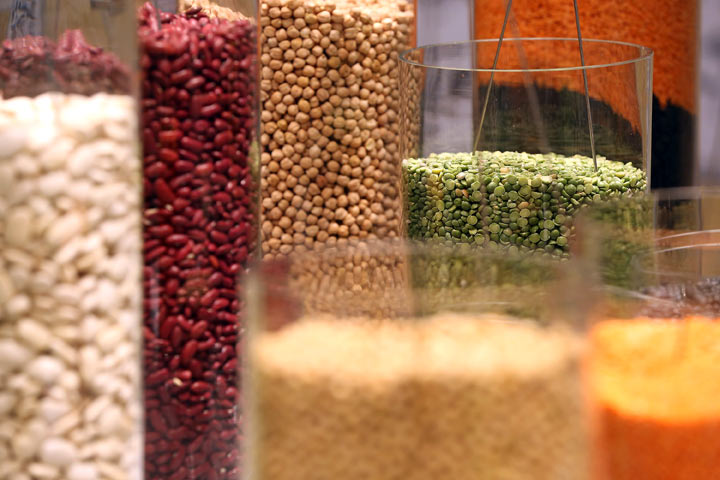If you’re trying to lose weight, or you’re managing heart disease and diabetes risk, Canadian scientists say it may be worthwhile to add beans, lentils or chickpeas into your daily meals.

In new research out of St. Michael’s Hospital in Toronto, doctors say that a daily helping of these foods – about three-quarters of a cup – could help with weight management and staving off chronic disease.
The weight loss is just over half a pound over the course of six weeks with the simple addition of pulses, their review suggests. There weren’t any other changes to diet and lifestyle for the people who took part in the research.
READ MORE: Why you should eat beans, lentils and peas to lower bad cholesterol
“Dietary pulses, such as dry beans and peas, lentils and chickpeas are an important sustainable protein source,” lead researcher, Dr. Russell de Souza, told Global News in an email.
“We think that our findings support eating pulses daily to help keep weight off,” he said.
He lists a handful of reasons why pulses help with weight loss, heart health and diabetes.
- Their main components – protein and fibre – make them great options for those at risk of heart disease. These components release hormones that also tell your brain that you’re full and to stop eating.
- They have a low glycemic index, which means the carbs in them don’t raise blood sugars as rapidly as food like white bread or white flour. The low GI provides a more steady supply of blood sugar post-meal, making sure you avoid a “crash.”
- They make you feel fuller and help with appetite control. In previous research, his team found that eating 100 calories worth of pulses at a meal makes you feel 31 per cent fuller than 100 calories from other food.
- It also takes you longer to chew and swallow pulses, which gives your body time to understand that you’re full.
His research is based on his previous work on how beans, lentils, and chickpeas help with lowering bad cholesterol. This time around, they zeroed in on the weight loss benefits found in 21 clinical trials with 940 people.
READ MORE: What’s the best way to cook vegetables? Steaming, study says
“Though the amount of weight loss was small, it’s important to state that the pulse-containing diets we reviewed were not designed for weight loss,” de Souza explained to Global. It happened to be a benefit participants reaped along the way.
READ MORE: This food will make you feel fuller if you’re trying to lose weight
Yet only 13 per cent of Canadians eat pulses on any given day and when they do, it’s usually not the full serving. The researchers are hoping their findings will change this around: make chili packed with beans, salads topped with chickpeas instead of chicken or beef or swap out white rice for lentils, for example.
De Souza’s full findings were published in the American Journal of Clinical Nutrition. The United Nations and the Food and Agriculture Organization named 2016 as the International Year of Pulses.
carmen.chai@globalnews.ca
Follow @Carmen_Chai


Comments